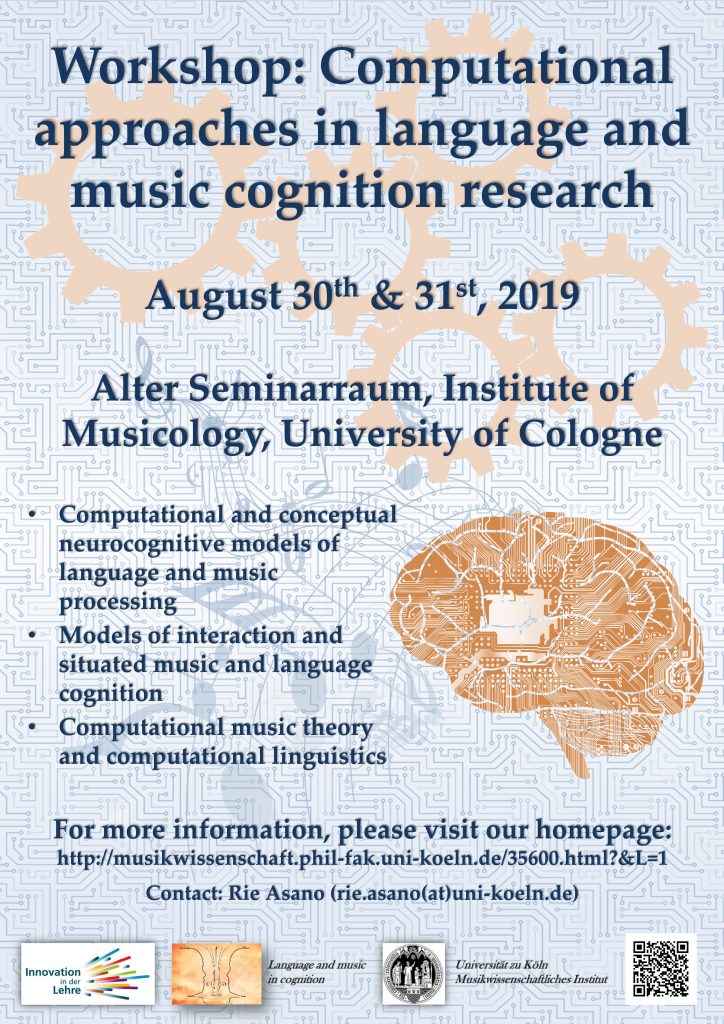My PhD thesis is finally available! Are you interested in the following topics?
- Biomusicology
- Cognitive biology
- Comparative approach
- Neurocognitive mechanisms
- Syntax in language and music
- Rhythmic syntax
- ALE meta-analysis
Then, download it here: https://kups.ub.uni-koeln.de/9749/
Comments are welcome!
Abstract
The current thesis tackles the question “Why is music the way it is?” within a comparative biomusicology framework by focusing on musical syntax and its relation to syntax in language. Comparative biomusicology integrates different comparative approaches, biological frameworks as well as levels of analysis in cognitive science, and puts forward principled explanations, regarding cognitive systems as different instances of the same principles, as its central research strategy. The main goal is to provide a preliminary answer to this question in form of hypotheses about neurocognitive mechanisms, i.e., cognitive and neural processes, underlying a core function of syntactic computation in language and music, i.e., mapping hierarchical structure and temporal sequence. In particular, the relationship between language and music is discussed on the basis of a top-down approach taking syntax as combinatorial principles and a bottom-up approach taking neural structures and operations as implementational principles. On the basis of the top-down approach, the thesis identifies computational problems of musical syntax, cognitive processes and neural correlates of music syntactic processing, and the relationship to language syntax and syntactic processing. The neural correlates of music syntactic processing are investigated by ALE meta-analyses. The bottom-up approach then studies the relationship between language and music on the basis of neural processes implemented in the cortico-basal ganglia-thalamocortical circuits. The main result of the current thesis suggests that the relationship between language and music syntactic processing can be explained in terms of the same neurocognitive mechanisms with different expressions on the motor-to-cognitive gradient. The current thesis, especially its bottom-up approach, opens up a possible way going toward comparative cognitive biology, i.e., a comparative approach to cognitive systems with a greater emphasis on the biology.

